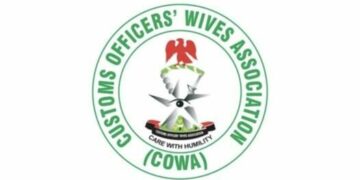The Nigerian Marítime Administration and Safety Agency (NIMASA), on Saturday, said it rescued seven distressed workers on a vessel in Lagos.
In a press statement by the head, public relations, NIMASA, Edward Osagie, said the workers were saved by prompt response of the agency.
According to him, the call was made to the director general, NIMASA, Dr Bashir Jamoh, came in at about 11.30 pm on February 2, 2023, from the Safety Officer on MT ALIMA.
“A total of 7 distressed workers have been saved by the prompt response of the NIMASA following a distress call to the director general, Dr. Bashir Jamoh.
“The position (coordinates) of the ship at the time of the call was 06*20.9’’N,003*21.9’’E at the single buoy mooring area in Lagos.
“Dr Jamoh, who immediately directed the NIMASA Head of the Deep Blue project and Head of the Maritime Safety Department to deploy one of the fast intervention boats for rescue operations and also directed immediate medical attention to the survivors.”
“NIMASA took the seven survivors to the military hospital at Ikoyi for medical attention, where they are presently recovering at various degrees. Five of them are now stable, one has a broken leg and one is still in critical condition.”
The NIMASA boss, however, assured stakeholders of 24-hour vigilance to respond to distress call on all vessels on the nation’s waterways.
“While reassuring the maritime community of NIMASA’s ever-ready 24-hour vigilance to respond to distress calls using any of the procured air, land and sea assets, Dr. Jamoh urged operators to be meticulous about basic safety standards at all times.”
He advised further that anyone working on board vessels should update themselves with required training that complies with Standards of Training Certification and Watchkeeping (STCW) in line with the revised Manila Convention.
Jamoh thanked the rescue team for the operation and urged them to keep the maritime tradition of round-the-clock watchkeeping and timely response at all times.
France Supports Nigeria’s Agrifood Markets With 1.2m Euros
The French government has given support to develop a strategy for agriculture and food markets in Nigeria with the sum of 1.2 million Euros.
Indications to this development emerged on Thursday when the Nigerian government signed the grant agreement of 1.2 million Euros with the French Ambassador to Nigeria, Emmanuelle Blatmann, the Country Director of the French Development Agency (AFD) and the Director of International Relations of the French company, Semmaris to boost agrifood markets in Nigeria.
According to a statement issued by the Press office of the French Embassy in Abuja, the Nigerian Government was represented by the Minister of Finance, Budget and National Planning, Zainab Ahmed and the Federal Minister of Agriculture and Rural Development (FMARD) Mohammed Abubakar.
“The AFD grant will finance a one-year technical assistance program to assist the FMARD in the design of a national agrifood market development strategy. This one-year study, which will run from Q1 2023 to Q1 2024, will look at the whole value chains market ecosystem from rural to urban areas, with a particular focus on the three largest urban consumption areas in Nigeria: Lagos-Ibadan, Kano-Kaduna and Owerri-Port-Harcourt.
“The study will result in an inventory of existing agricultural markets, an in-depth analysis of current distribution channels and agrifood logistics, a legal and regulatory framework adapted to market development, and technical recommendations to rehabilitate or build three terminal markets.
“The program will be implemented by the French company, Semmaris with the support of the Federal Project Management Unit (FPMU) of the Rural Access and Agricultural Marketing Project (RAAMP) within the FMARD,” the statement said.
Semmaris has been managing for over 50 years the largest wholesale fresh food market worldwide in Rungis, France. The Rungis Market brings together over 1,200 companies from various segments of the food value chains.
This initiative will build on the 10-year intervention of the World Bank and AFD in the rural development sector in Nigeria through the “Rural Access and Mobility Project” (RAMP) achieved in 2021, and the on-going “Rural Access and Agricultural Marketing Project” (RAAMP) (2020-2028) co-financed by AFD and WB for a total investment of EUR 700 M including EUR 296 M from AFD.
These projects will contribute to reducing post-harvest losses through the rehabilitation of over 2 000km of all-season rural roads and the upgrading of 65 collection markets into agro-logistics hubs in 19 States across the country.
In Nigeria, agriculture accounts for 22% of GDP in 2020 and employs 70% of the formal and informal working population. Nigeria is a major producer of roots and tubers (world’s leading producer of cassava, large producer of taro and yam), cereals (maize, rice, sorghum), cocoa and palm oil.
Its agriculture is characterized by small, low-productivity family farms, which practice low-mechanized subsistence rain-fed agriculture. 80% of farmers are smallholders and provide a total of 90% of the country’s agricultural production. Despite growing agricultural production, imports of agri-food products are increasing while 30 to 40% of crops are said to be lost on site due to lack of access to roads and markets.
This study will contribute to structuring a food value chain and strengthen agri-food systems. It will help identify the terminal markets that should be rehabilitated or newly built in the outskirts of cities, linking up Nigeria’s major urban consumption areas to rural areas that are benefitting from AFD and World Bank’s past and on-going interventions.




